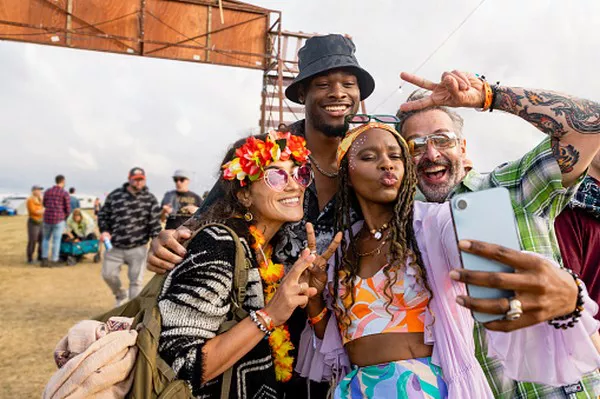Australia, the land Down Under, is not just renowned for its breathtaking landscapes and diverse wildlife; it’s also a melting pot of cultures, traditions, and festivities. Amidst the vast array of holidays celebrated across the country, one stands out as the grandest and most eagerly anticipated: Australia Day. This national holiday, observed annually on January 26th, is a celebration of unity, diversity, and the rich tapestry of Australian identity.
Historical Roots and Evolution
To truly understand the significance of Australia Day, it’s essential to delve into its historical roots. The date, January 26th, marks the anniversary of the arrival of the First Fleet at Port Jackson in 1788, an event that led to the establishment of the first European settlement in Australia. Initially known as Foundation Day, the holiday was commemorated primarily in New South Wales during the 19th century.
However, the significance of January 26th evolved over time. While it symbolized the birth of modern Australia for some, for Indigenous Australians, it represented the beginning of colonization, dispossession, and the erosion of their culture and land rights. This duality of perspectives underscores the complexity surrounding Australia Day and has led to ongoing debates about its meaning and appropriateness.
In recent decades, efforts have been made to foster inclusivity and reconciliation by acknowledging the Indigenous perspective and incorporating it into the national discourse. This has prompted calls for the date of Australia Day to be changed to one that is more inclusive and reflective of the entire Australian population. While opinions on this matter remain divided, the conversation itself underscores the evolving nature of Australia Day and its significance in contemporary society.
National Celebrations
Australia Day is marked by a myriad of festivities and events held across the nation, from vibrant city parades to community barbecues in suburban parks. One of the most iconic traditions is the Citizenship Ceremony, where thousands of immigrants from all corners of the globe officially become Australian citizens. These ceremonies serve as a powerful reminder of Australia’s multicultural identity and the contributions of immigrants to the nation’s prosperity and diversity.
Another hallmark of Australia Day celebrations is the Australian of the Year Awards. These prestigious awards recognize individuals who have made outstanding contributions to their communities and the nation as a whole. From scientists and artists to activists and volunteers, the recipients embody the values of courage, compassion, and innovation that define the Australian spirit.
Throughout the day, communities come together to enjoy a wide range of activities, including live music performances, sports competitions, and cultural exhibitions. From the shores of Bondi Beach to the heart of the Outback, Australians of all ages and backgrounds come together to celebrate their shared heritage and values.
Cultural Significance
Beyond its historical origins and contemporary celebrations, Australia Day holds profound cultural significance for many Australians. It serves as a time for reflection, remembrance, and renewal, as individuals and communities pause to honor their past, embrace their present, and envision their future.
For Indigenous Australians, Australia Day is a day of mourning and resilience, a time to acknowledge the injustices of the past and affirm their ongoing struggle for recognition, reconciliation, and justice. Despite the challenges they face, Indigenous communities continue to celebrate their rich cultural heritage and uphold their traditions through art, music, and storytelling.
For non-Indigenous Australians, Australia Day represents an opportunity to celebrate the nation’s achievements and values while also acknowledging its flaws and shortcomings. It’s a day to reflect on the principles of fairness, equality, and mutual respect that underpin Australian society and to recommit to building a more inclusive and harmonious future for all.
Controversies and Debates
Despite its widespread popularity, Australia Day is not without its controversies and debates. The date of January 26th remains a point of contention, with calls for it to be changed or replaced with an alternative date that is more inclusive and reflective of Australia’s diverse history and heritage. While some argue that changing the date would be an important step towards reconciliation and healing, others oppose the idea, citing concerns about erasing or rewriting history.
In recent years, there has also been growing criticism of the commercialization and commodification of Australia Day, with some arguing that it has become more about partying and consumerism than about reflecting on the nation’s history and values. This has prompted calls for a more meaningful and respectful approach to commemorating Australia Day, one that acknowledges the complexities of the past while also celebrating the achievements of the present.
Looking to the Future
As Australia continues to evolve and grow as a nation, the significance of Australia Day will undoubtedly continue to evolve as well. While its historical origins may remain contested, its role as a day of reflection, celebration, and unity is unlikely to diminish. As Australians from all walks of life come together to commemorate their shared heritage and values, they will continue to shape the meaning and significance of Australia Day for generations to come.
In the spirit of reconciliation and mutual respect, it is imperative that Australians engage in open and respectful dialogue about the meaning and significance of Australia Day, acknowledging the perspectives of all members of society and working towards a future that is inclusive, equitable, and just for all.
See also: What Are The Mandatory Holidays In Australia
Conclusion
Australia Day is more than just a public holiday; it is a reflection of the diverse and dynamic nation that is Australia. As we celebrate our past, embrace our present, and envision our future, let us remember the values that unite us as Australians and striveC to build a society that is fair, inclusive, and respectful of all cultures and traditions. Happy Australia Day!

